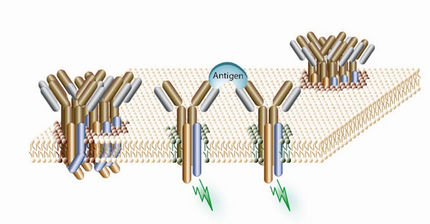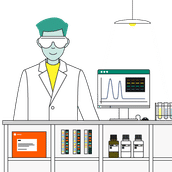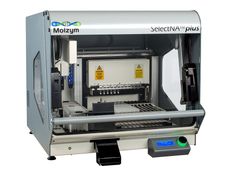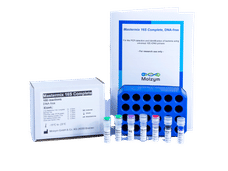K-State researcher, collaborators study virulence of pandemic H1N1 virus
Advertisement
Laboratory studies at Kansas State University and the work of a K-State researcher are making headway in the effort to control the pandemic H1N1 virus. Juergen Richt, Regents Distinguished Professor at K-State's College of Veterinary medicine and Kansas Bioscience Authority Eminent Scholar, works at K-State and with outside collaborators to reveal the characteristics of the pandemic H1N1 virus.
"Our strength at K-State is that we are very familiar with zoonotic diseases and we can contribute by working on models for animal and human diseases," Richt said. "This expertise is very critical now that an agent causing a pandemic flu in humans most likely originated in animal populations."
At K-State, Richt is leading in vitro research to develop better testing tools, creating a "diagnostic arsenal" if H1N1 were to spread to swine populations. Richt said they are developing diagnostic tools for the direct detection of the virus by finding nucleic acids or other parts of the virus in a sample, as well as tools for indirect detection. The latter approach is done by creating diagnostics that detect antibodies produced by animals infected with the virus.
"We do this work to protect the pig industry in case the virus would jump into the swine population," Richt said.
His work with outside collaborators is testing the virulence of pandemic H1N1 in animal models. In pigs, Richt and his fellow researchers found that pandemic H1N1 does infect pigs and transmits between the animals but is not fatal.
"Its important to know the clinical and pathological effects this virus has on pigs," Richt said. "It is also important to perform these experiments because we produce reagents in the pigs that we use later for diagnostic purposes as controls to validate our testing systems."
The researchers also studied the virulence of two strains of the pandemic H1N1 virus in a nonhuman primate model as a way to predict how the strains would affect humans. Comparing an isolate from California with one from Mexico, Richt and his collaborators found that the California isolate was more virulent than the Mexico isolate. Both pandemic H1N1 viruses are more virulent than seasonal H1N1 flu viruses.
Other news from the department science
These products might interest you
Most read news
More news from our other portals
See the theme worlds for related content
Topic world Antibodies
Antibodies are specialized molecules of our immune system that can specifically recognize and neutralize pathogens or foreign substances. Antibody research in biotech and pharma has recognized this natural defense potential and is working intensively to make it therapeutically useful. From monoclonal antibodies used against cancer or autoimmune diseases to antibody-drug conjugates that specifically transport drugs to disease cells - the possibilities are enormous

Topic world Antibodies
Antibodies are specialized molecules of our immune system that can specifically recognize and neutralize pathogens or foreign substances. Antibody research in biotech and pharma has recognized this natural defense potential and is working intensively to make it therapeutically useful. From monoclonal antibodies used against cancer or autoimmune diseases to antibody-drug conjugates that specifically transport drugs to disease cells - the possibilities are enormous
























































